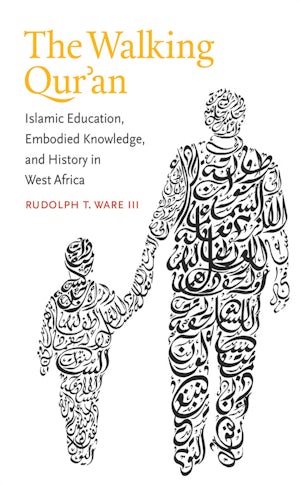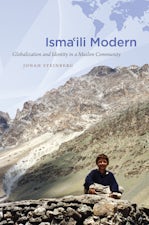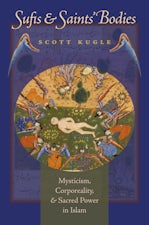The Walking Qur'an
Islamic Education, Embodied Knowledge, and History in West Africa
By Rudolph T. Ware III
352 pp., 6.125 x 9.25, 12 halftones, 4 maps, notes, bibl., index
-
Paperback ISBN: 978-1-4696-1431-1
Published: June 2014 -
E-book EPUB ISBN: 978-1-4696-1432-8
Published: June 2014 -
E-book PDF ISBN: 979-8-8908-4560-3
Published: June 2014
Islamic Civilization and Muslim Networks
Buy this Book
- Paperback $39.95
- E-Book $19.99
For Professors:
Free E-Exam Copies
Today, many Muslims and non-Muslims find West African methods of Qur'an schooling puzzling and controversial. In fascinating detail, Ware introduces these practices from the viewpoint of the practitioners, explicating their emphasis on educating the whole human being as if to remake it as a living replica of the Qur'an. From this perspective, the transference of knowledge in core texts and rituals is literally embodied in people, helping shape them--like the Prophet of Islam--into vital bearers of the word of God.
About the Author
Rudolph T. Ware III is assistant professor of history at the University of Michigan.
For more information about Rudolph T. Ware III, visit
the
Author
Page.
Reviews
"An excellent and needed contribution to understanding classical Islamic learning methods." —American Journal of Islamic Social Sciences
"Full of bold moves….An important book whose provocative and controversial exploration of the phenomenology and epistemologies of West African Islam…succeeds in reopening the scholarship and public debate about Islam, not only in West Africa but also in the Muslim world."—Comparative Studies of South Asia, Africa and the Middle East
"A fascinating new account of the history of taalibes."—Book and Ideas
"Outstanding…With [this] publication, Ware has established his reputation as an authority on West African history and Islamic epistemology."—Harvard Divinity Bulletin
“A compelling account of Muslim epistemology and a strong contribution to African history.”—Journal of Africana Religions
"Full of original ideas and interpretations, Ware's model of embodied Qur'anic learning is an important contribution to our understanding of Islam in Africa." —Nile Green, University of California, Los Angeles



